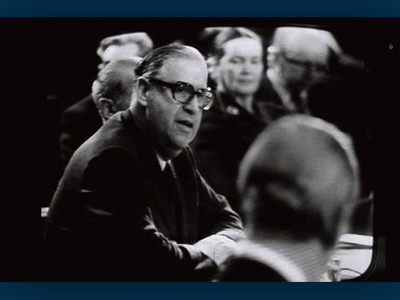
December 21, 1973
Though the Geneva Middle East Conference was convened under the co-chairmanship of the United States and Soviet Union, Secretary of State Henry Kissinger kept the Soviet Union almost totally uninformed about progress being made privately between Israel and Egypt for a future disengagement agreement. Egyptian President Anwar Sadat, in turning to the United States for diplomatic engagement, made it clear that he did not want to have a conference where detail would be discussed, only formalities were to take place at a conference.
The detail of the future Israeli-Egyptian January 1974 Disengagement Agreement had been worked out prior to the conference. Indeed, Foreign Ministers from Israel, Egypt, and Jordan attended the conference “aimed at establishing a just and durable peace in the Middle East.” Syrian President Hafez al-Assad chose not to attend because the United States and Israel refused to recognize the PLO as the representative body for the Palestinians at the conference since the PLO refused to recognize Israel’s right to exist. And nothing that Assad heard from Kissinger made him believe that Israel was willing to leave any part of the Golan Heights. Assad had correctly sensed that the coming conference was only a cover for an Egyptian-Israeli agreement.
The Foreign Ministers left Geneva by December 29 with the stated intention to reconvene at a future date, but this never occurred, even though President Carter tried in 1977 to resurrect the conference idea. But then too, Sadat and Israeli Prime Minister Menachem Begin balked at that possibility, if it meant negotiating details in public.
